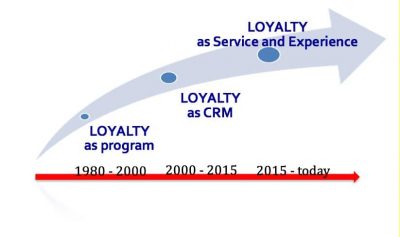
When it comes to your customers, there are key elements for creating customer loyalty. One thing I find that many businesses fail to analyze — and perhaps one of the most essential ingredients to earning and keeping customer loyalty – is quality.
Customers may love you and love your staff; they may keep coming into your beautiful facility packed with all kinds luxuries. But, in the end, if the output from their visit isn’t of the expected quality, you may quickly find that the customer’s eyes cloud over and they start to look at taking their business to your nearest competitor.
Examples of poor quality in service could include failing to fix a vehicle right the first time; forgetting to put the air filter in the car; communication errors; mistakes on the bill; or even something as small as returning the vehicle with a dirty carpet.
Sometimes the customer will inform you and you can immediately address the situation. But other times the customer may just stay quiet and/or not notice until later. Either way, there was a bump in the road for the customer because the service they received wasn’t of high enough quality.
Being reactive is much more expensive than being proactive. Think about it. When customer hiccups do occur, dealerships will often not only fix the problem, but also throw in something “extra” as an apology. That extra could be a free oil change, or a gift card. Regardless of what it is, those extras cost money and detract from revenue.
Dealerships with a quality control process in place that helps ensure they don’t happen in the first place, and identifies these issues before the customer even becomes aware of any problem, find less occurrences of poor quality work.
What does a quality control process look like? It could be as simple as having the service advisor inspect the vehicle before giving it back to the customer. Perhaps a second technician could do a once-over inspection after the work is completed, just to get a fresh set of eyes on the vehicle. In sales have a sales manager review the deal with a customer prior to sending it to F&I. This can help ensure nothing was missed, that the customer understands all the terms, and that it includes everything the customer has voiced they want included in the deal.
These simple stop-gaps installed within regular dealership processes can prevent issues from arising. Whether service or sales, many tasks are routine and the simple process of performing the same tasks day in and day out can lead to fatigue or carelessness. No dealership wants to make mistakes. But they do happen – it’s just part of being human.
To keep the highest quality possible, all staff need to be on the same page and share an ambition for quality, which is of utmost importance in the quest for customer loyalty.
